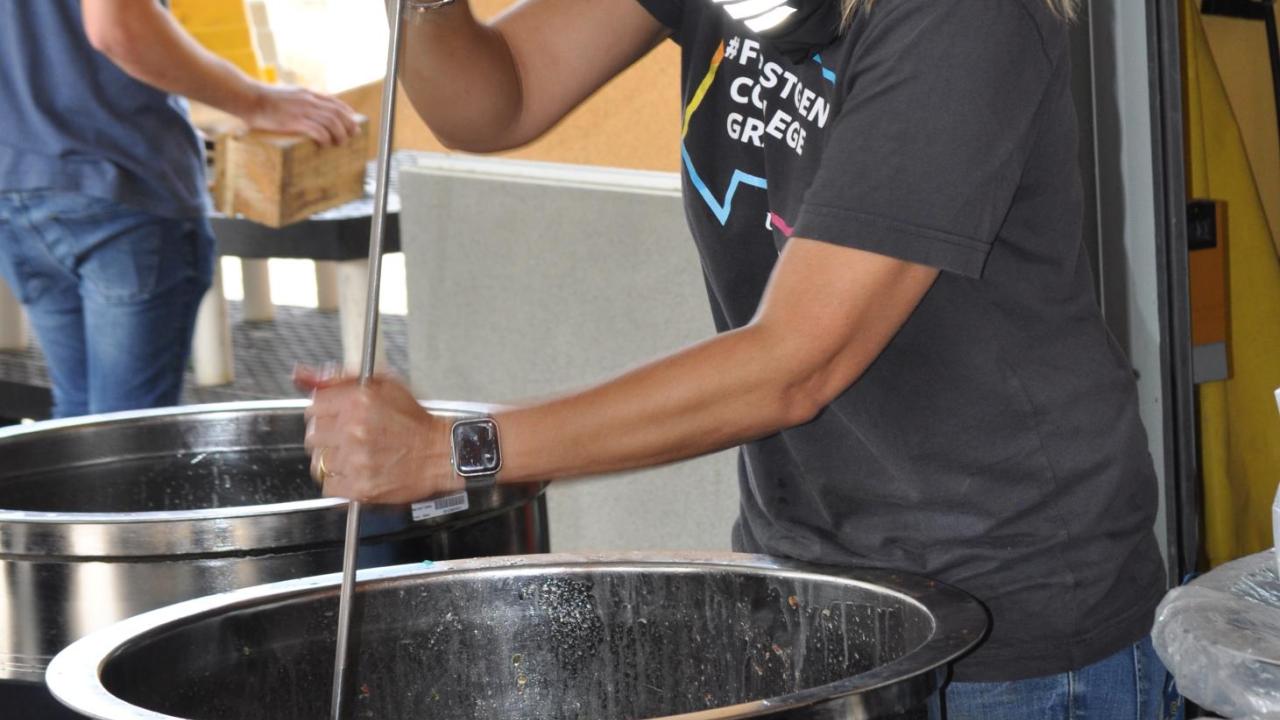
The wildfires of 2020 changed the Oberholster lab harvest plan dramatically.
Suddenly, we had several grape varieties, on the UC Davis vineyards doorstep, exposed to heavy smoke and ash. We could not let the opportunity to study the varietal impact on smoke exposure slip through our fingers.
However, as the questions started pouring in from the grape and wine industries, our winemaking treatments also kept increasing. Questions came in about the impact of ash on grapes, whole cluster pressing or fermentations, and ways to speed up micro-fermentations to obtain lab results faster. The Oberholster Lab ended up doing an additional 288 fermentations for smoke exposure research that were not originally planned. This included 55 research scale fermentations (>30 gal), 156 bucket (5 gal) fermentations, and 77 micro-fermentations (0.1 to 0.2 gal). There could have been more, but lab personnel were so exhausted after two months straight of harvest days, I promised to not accept more offers of grapes. The 2020 harvest encompassed 13 different varieties from five different counties.
Hopefully, we can go back, during the 2021 harvest, and sample all of these grapes again to obtain baseline data. Information obtained from these fermentations will help us, for instance, determine the influence of variety, as well as whether the inclusion of rachis and/or ash during fermentation effect smoke exposure impact.
We will spend the next nine months analyzing all the grape and wine samples described above, with the hope that we will have more answers the next time we need to assist our stakeholders with grape smoke exposure issues. However, it is our sincere hope that future harvest seasons will be uneventful.
